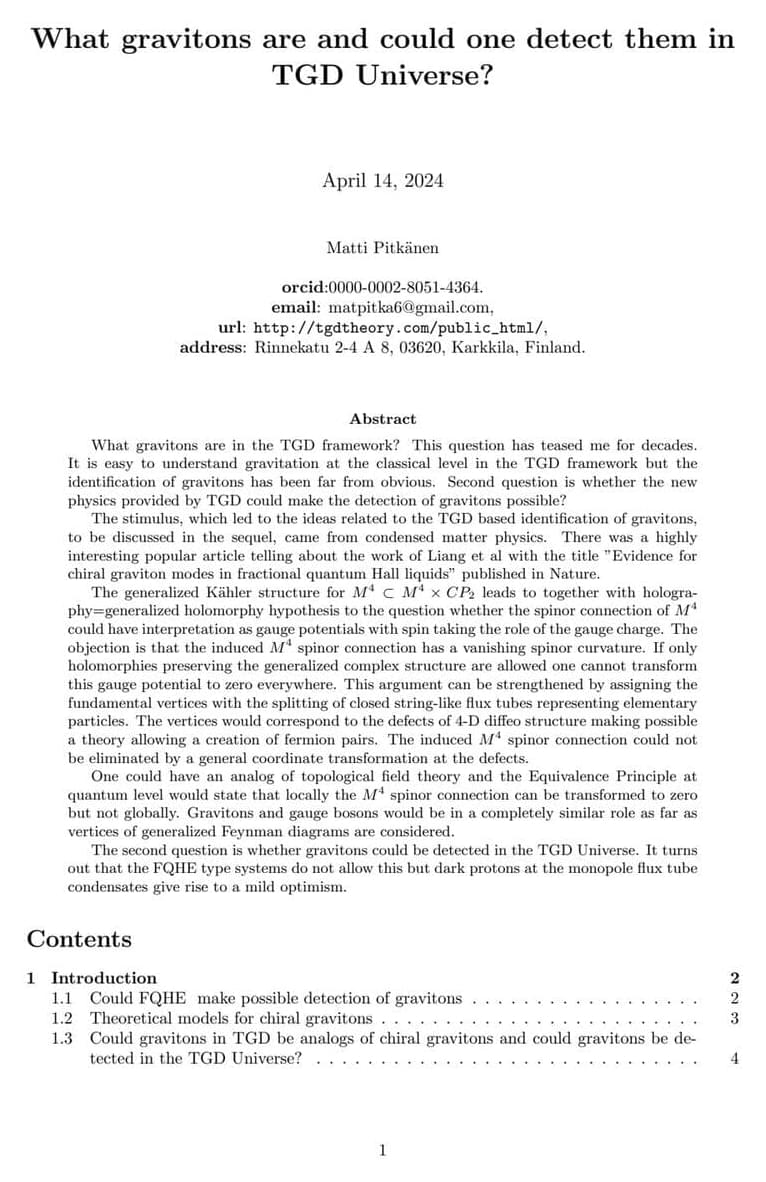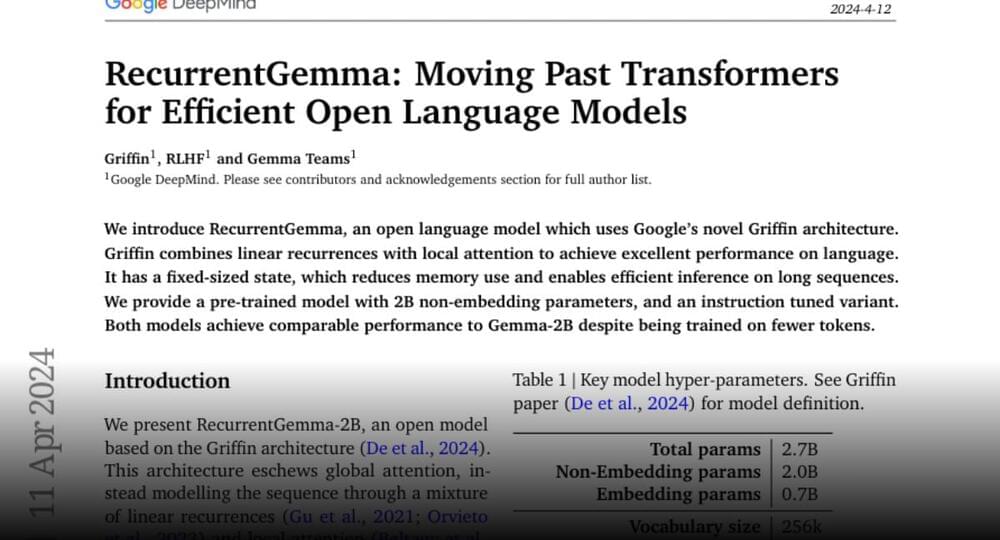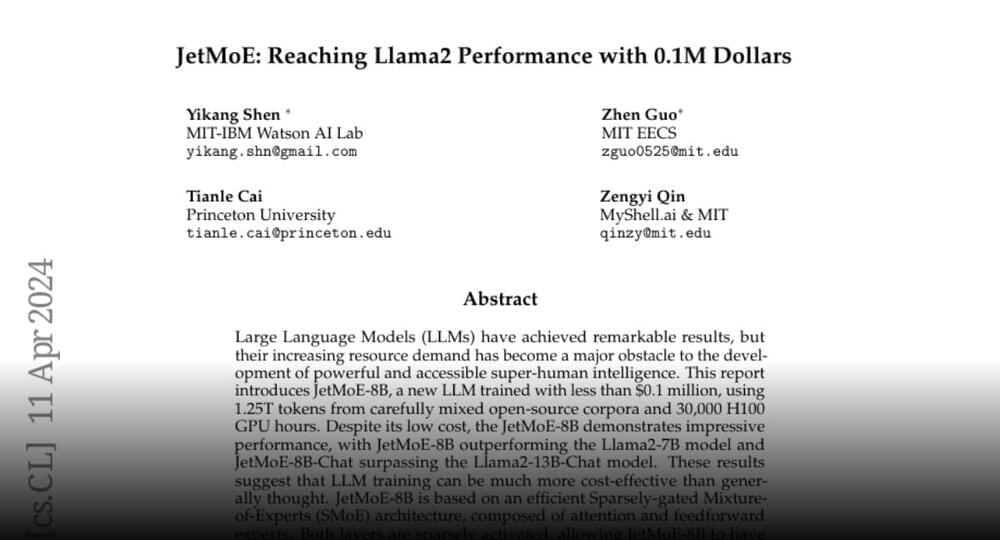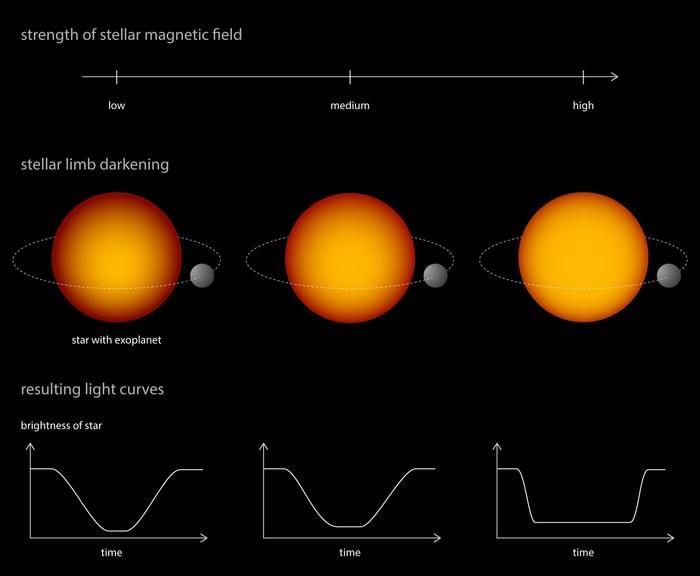Archive for the ‘futurism’ category: Page 110
Apr 14, 2024
The Mirror Universe Could Actually Be Real And It’s Scarier Than We Thought
Posted by Dan Breeden in category: futurism
While the idea of a mirror universe sounds like something from Marvel’s Doctor Strange, scientists now believe it could be real.
Apr 14, 2024
For the first time, Wigner crystal is seen using a quantum device
Posted by Paul Battista in categories: futurism, quantum physics
Physicists at Princeton University successfully visualize the 90-year-old Wigner Crystal theory. This could pave the way for future quantum discoveries.
Apr 14, 2024
Paper page — RecurrentGemma: Moving Past Transformers for Efficient Open Language Models
Posted by Cecile G. Tamura in category: futurism
Google presents RecurrentGemma.
Moving past transformers for efficient open language models.
We introduce RecurrentGemma, an open #language model which uses Google’s novel Griffin architecture.
In December, the Particle Physics Project Prioritization Panel, called P5, released its recommendations for the future of the field, based on the input from the Snowmass process.
The US physics community dreams of building a muon collider.
Apr 13, 2024
Many-Valued Logic (Stanford Encyclopedia of Philosophy)
Posted by Dan Breeden in category: futurism
Reminds me of the world of null A by AEVan Vogh.
Many-valued logics are non-classical logics. They are similar to classical logic because they accept the principle of truth-functionality, namely, that the truth of a compound sentence is determined by the truth values of its component sentences (and so remains unaffected when one of its component sentences is replaced by another sentence with the same truth value). But they differ from classical logic by the fundamental fact that they do not restrict the number of truth values to only two: they allow for a larger set W W of truth degrees.
Apr 13, 2024
JetMoE: Reaching Llama2 Performance with 0.1M Dollars
Posted by Cecile G. Tamura in category: futurism
From MIT & Princeton.
JetMoE
Reaching Llama2 Performance with 0.1M Dollars.
Continue reading “JetMoE: Reaching Llama2 Performance with 0.1M Dollars” »
Apr 13, 2024
Mystery Solved? Scientists Shed New Light on Mysterious Giant Bones That Have Puzzled Paleontologists for 150 Years
Posted by Saúl Morales Rodriguéz in category: futurism
Several similar large, fossilized bone fragments have been discovered in various regions across Western and Central Europe since the 19th century. The animal group to which they belonged is still the subject of much debate to this day. A study carried out at the University of Bonn could now settle this dispute once and for all: The microstructure of the fossils indicates that they come from the lower jaw of a gigantic ichthyosaur. These animals could reach 25 to 30 meters in length, a similar size to the modern blue whale. The results have now been published in the journal PeerJ.
In 1,850, the British naturalist Samuel Stutchbury reported a mysterious find in a scientific journal: A large, cylindrical bone fragment had been discovered at Aust Cliff – a fossil deposit near to Bristol. Similar bone fragments have since been found in various different places around Europe, including Bonenburg in North Rhine-Westphalia and in the Provence region of France. More than 200 million years ago, these areas were submerged beneath a huge ocean that covered vast swathes of Western and Central Europe. Fossil remains from the animal world of that time – including marine and coastal dwellers – have been preserved in the sediment.
There is still some debate to this day about the animal group to which these large, fossilized bones belonged. Stutchbury assumed in his examination of the first finds that they came from a labyrinthodontia, an extinct crocodile-like land creature. However, this hypothesis was questioned by other researchers, who believed instead that the fossils came from long-necked dinosaurs (sauropods), stegosaurs, or a still completely unknown group of dinosaurs.
Apr 12, 2024
A New Approach to Analyze Exoplanetary Light Curves
Posted by Laurence Tognetti, Labroots Inc. in categories: futurism, space
“The problems arising when interpreting the data from WASP-39b are well known from many other exoplanets — regardless whether they are observed with Kepler, TESS, James Webb, or the future PLATO spacecraft,” said Dr. Nadiia Kostogryz.
While there is currently a myriad of techniques used to both discover exoplanets and calculate their physical characteristics, could other methods be developed to overcome specific data errors? This is what a recent study published in Nature Astronomy hopes to address as an international team of researchers investigated how a star’s magnetic field can be used to ascertain additional data for an exoplanet, which is traditionally done using conventional exoplanet detection methods, specifically the transit detection method. This study holds the potential to help astronomers establish new methods for discovering and characterizing exoplanets throughout the cosmos.
For the transit method, an exoplanet passes in front of its parent star, causing its starlight to slightly decrease and has been instrumental in discovering and characterizing thousands of exoplanets. However, astronomers have also discovered that a star’s limb darkening, which is the observed edge of the star, causes errors in transit light curves for exoplanets, despite using state-of-the-art atmospheric models to predict observations.
Continue reading “A New Approach to Analyze Exoplanetary Light Curves” »


















